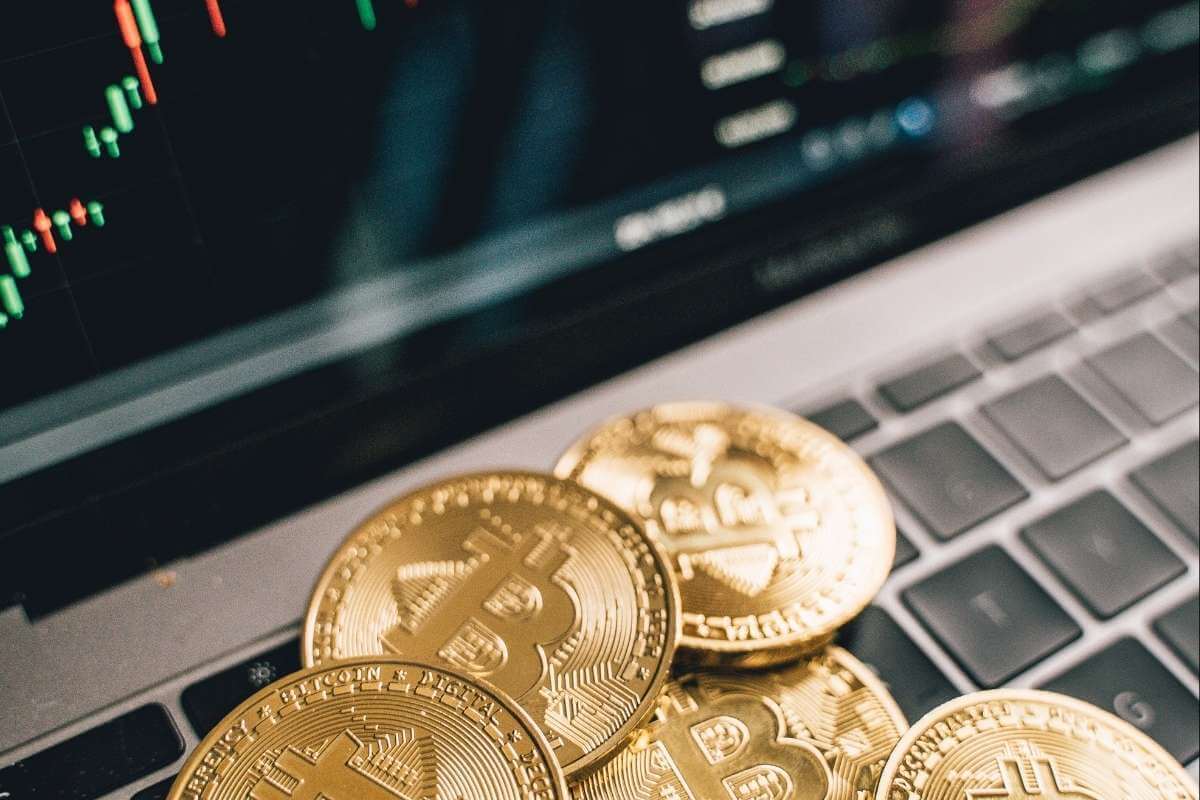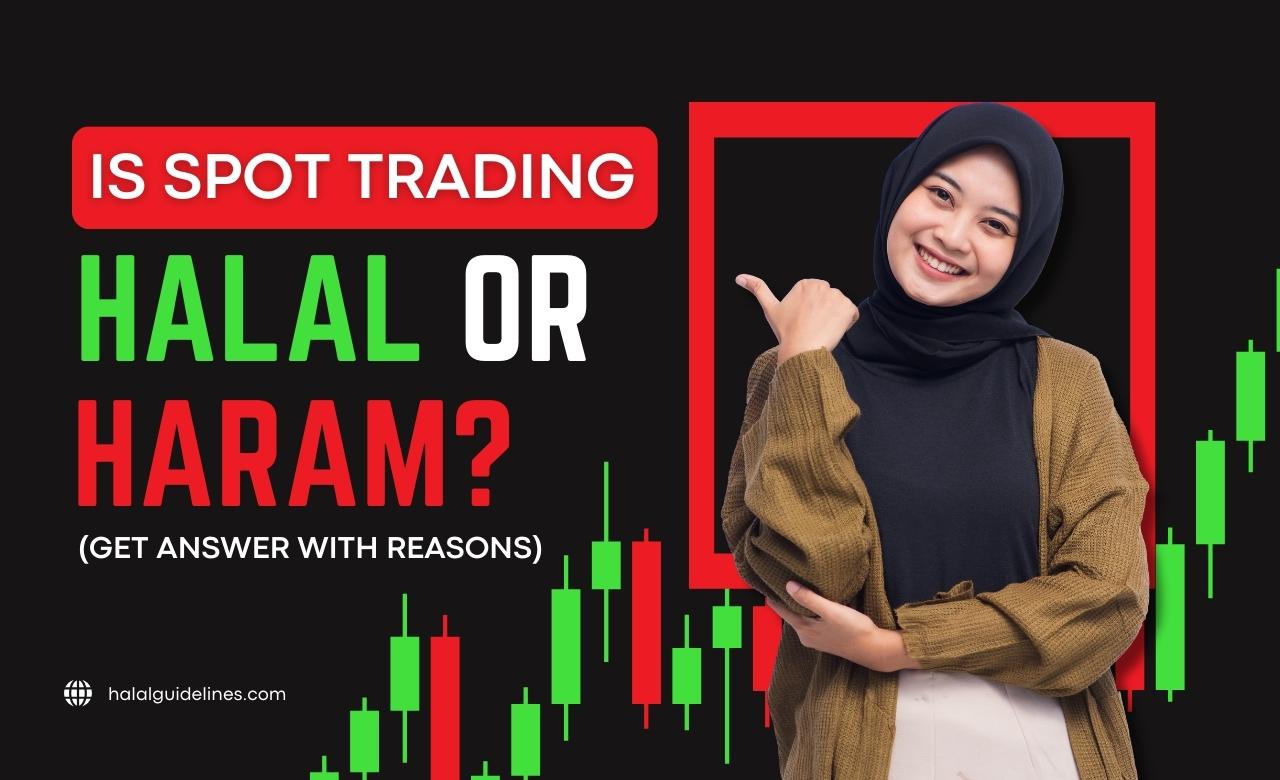7 Reasons Why Spot Trading is Halal According to Islam

Here is why spot trading is generally considered halal according to the Islamic point of view:
1. Immediate Transactions (No Delay)

Spot trading happens instantly, meaning the buyer and seller exchange assets simultaneously. This immediate exchange eliminates any risk of delay or future uncertainty, ensuring the transaction remains fair and transparent.
Here is how:
- No Postponed Payment
- Clear Agreement
- Direct Ownership Transfer
2. No Interest (Riba-Free)
Islam forbids riba (interest), but spot trading does not involve any lending or borrowing with interest. You only pay the actual market price without any additional charges based on time delays.
3. Ownership of Assets

In spot trading, you actually own the asset you buy, in case it is a stock, cryptocurrency, or commodity. Islam permits trade when ownership is clear and immediate.
4. Fair and Transparent Pricing
Spot trading operates based on real-time market prices, preventing manipulation and fraud. It confirms that both buyers and sellers have equal access to pricing information, reducing the chances of unfair advantages or hidden costs.
Transparency is a key Islamic principle in trade and business dealings. Honest and open transactions promote trust among traders, making sure of ethical commerce that aligns with Islamic values.
Market integrity is maintained, as there is no room for deceitful practices or artificial price inflation.
- If you want, you can read about: Is Future Trading Haram or Halal
5. No Speculative Gambling (Maysir-Free)

Unlike futures and options trading, spot trading is not purely speculative. You trade actual assets rather than betting on price movements without ownership, which aligns with Islamic finance ethics.
6. No Uncertainty (Gharar-free)
Islam prohibits excessive uncertainty in transactions because it can lead to unfair advantages and disputes. When there is ambiguity in a trade, one party may end up being misled or disadvantaged, which goes against the ethical guidelines of Islamic finance.
Spot trading is straightforward since both parties know what they are buying and selling at a fixed price. This eliminates confusion and ensures that the terms of the trade are clear and agreed upon, preventing any hidden risks or unexpected losses for the buyer or seller.
- Read about: Affiliate Marketing Halal Or Haram in Islam
7. Encourages Lawful Trade and Economy
Islam supports ethical business and economic growth by encouraging fair and transparent trade. It ensures that individuals can earn a livelihood while maintaining honesty and integrity in their financial transactions.
Spot trading allows individuals to engage in lawful commerce and investment without violating Islamic principles.
Since it involves real assets and immediate transactions, it promotes a stable and halal financial environment.
- Encourages Ethical Trade
- Supports Real Economic Growth
- Promotes Transparency in Business
- Verify Fair Market Practices
Following these principles ensures that spot trading aligns with Islamic values, enabling individuals to participate in financial markets without compromising their faith.
It offers a halal way to invest, build wealth, and contribute to economic growth while maintaining ethical business practices.
When Does Spot Trading Become Haram?
While spot trading is halal, it can become haram in certain situations:
- Trading in Haram Assets – If the traded assets belong to haram industries (e.g., alcohol, gambling, or interest-based banking), the trade itself becomes haram.
- Using Leverage with Interest (Riba) – Some brokers offer leveraged trading, which involves borrowing money with interest. Any trade involving riba is strictly prohibited in Islam.
- Engaging in High-Risk Speculation (Maysir) – If a trader engages in excessive speculation, making it more like gambling than investing, it becomes haram.
- Manipulating the Market (Fraudulent Practices) – Any form of deception, market manipulation, or insider trading is against Islamic ethics and makes the transaction haram.
- Delayed Settlements (Gharar) – If the exchange of assets and payment is not immediate, leading to uncertainty, the trade may be considered haram.
- Learn about: Forex Trading Haram Or Halal?
Final Thoughts on Spot Trading
Spot trading is halal in Islam as long as it follows ethical guidelines, involves real assets, and avoids interest, speculation, or uncertainty. However, if any element of riba, maysir, or gharar is involved, it becomes haram. Always ensure your trading activities comply with Islamic finance principles to stay within halal boundaries.
May Allah guide all Muslims in making lawful financial decisions.






